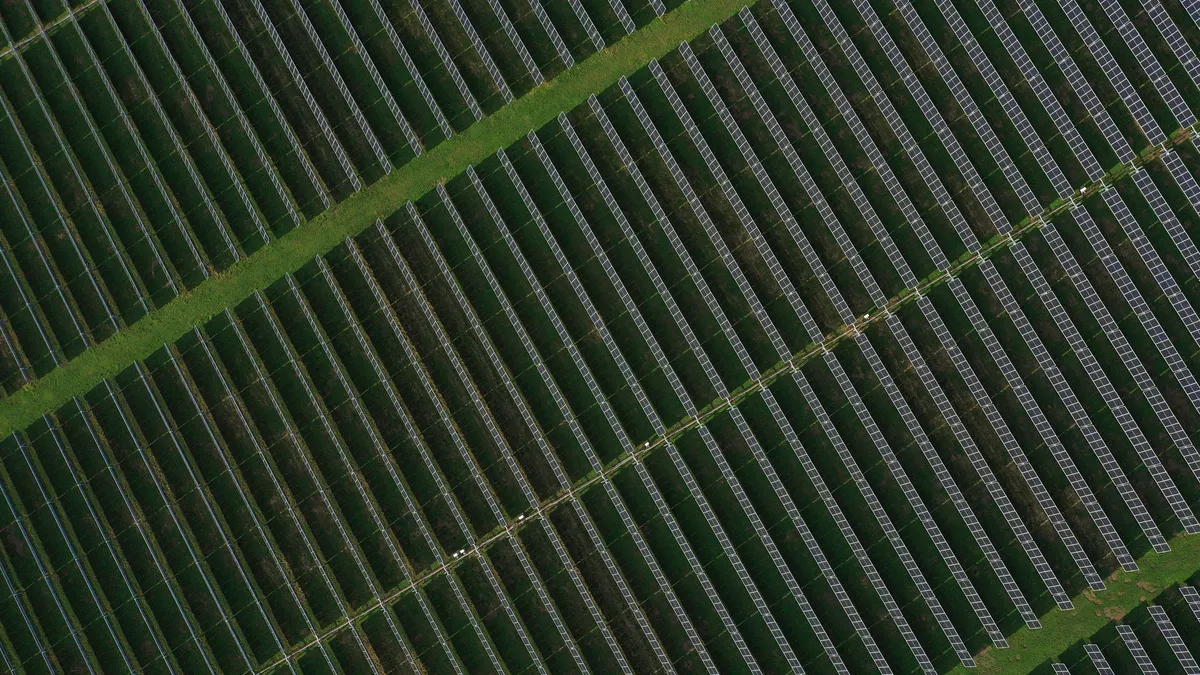The following is a contributed article by Adam Maxwell, government relations director at Audubon Washington, with contributions from Caleb Heeringa, Sierra Club; Sean O'Leary, Northwest Energy Coalition; and Vlad Guttman, Climate Solutions.
The dramatic drop in the price of clean energy in recent years is rapidly transforming the electric utility industry.
Over the course of the last decade, clean energy resources like wind and solar have become cheaper than coal power and are now cost-competitive with "natural" gas. This trend is projected to continue, particularly given that wind and solar have no fuel costs while gas plants will forever be tied to the fluctuating cost of gas, two-thirds of which comes from the environmentally destructive process of hydraulic fracturing.
Last fall, Western Washington got a stark reminder of the cost, reliability issues and shear danger of having an electricity grid reliant on fracked gas when a pipeline explosion in British Columbia almost led to region-wide power outages.
Wind and solar power aren't the only technologies upending the status quo in the electric utility industry. New demand-side and storage technologies are being introduced to address reliability concerns and provide clean, affordable energy at the times most needed.
These projects are popping up across the American West — one is proposed in Montana near a transmission line owned in part by Puget Sound Energy. In February, a Portland utility announced that it would be building the largest pairing of wind/solar/battery storage in North America in Central Oregon. In addition, Arizona's largest utility recently determined that battery storage was far cheaper than building out new fracked gas peaker plants.
SB 5116: Ensuring an orderly transition
These rapid transformations in electricity show that a transition to 100% clean energy is achievable, affordable and reliable.
The Washington Legislature is considering SB 5116 to ensure that Washington State's utilities — many of which have shareholders with investments in fossil fuel production and transport — make the right decision for climate and their customers' pocket books rather than building out expensive new fossil fuel infrastructure. Washington State is already about 75 percent fossil fuel-free, meaning we are well-positioned for a smooth and orderly phase out of fossil fuels.
The bill, which would set Washington on a path to 100% clean electricity by 2045, has now passed the state Senate and is expected to have a vote on the floor of the House in the coming weeks. Opposition to this bill has been notably muted, as many Washington state utilities have elected to participate in the policy development process rather than outright oppose the legislation.
In addition, Washington would not be taking this step alone — states like Hawaii and California have already passed laws to transition to 100% clean. Last month, New Mexico became the third state to commit and states including Nevada, Illinois, Minnesota, Florida, New York, Maine and Massachusetts are also considering 100% clean electricity bills.
Utilities are also taking action.
In March, Idaho's largest utility committed to get rid of fossil fuels by 2045 and announced a new solar project that is likely a record low price for solar nationwide. As more jurisdictions commit to 100% clean electricity, the future of a clean, smart and affordable electric grid begins to come into view.
Years of work have gone into making SB 5116 a careful and thoughtful policy that will help Washingtonians unlock 100% clean energy affordably and reliably.
Specific mechanisms for fostering an affordable, reliable clean electricity system
Planning, evaluation and assessment
Under SB 5116, every electric utility in the state will incorporate both the 2030 greenhouse gas-neutral and 2045 100% clean targets into all of their planning and resource acquisition decisions.
Specifically, utilities will need to propose and get approval for interim targets for energy efficiency, demand response and renewable energy. This gives utilities plenty of time to chart an orderly and cost-effective course to getting fossil fuels off the grid.
Along the way, relevant state agencies will play a key role in ensuring an accountable and cost-effective transition to 100% clean energy. Beginning in 2024, the Department of Commerce will be responsible for preparing an overall review of the technological, infrastructural and environmental viability of the standards, with a special focus on safety, reliability and affordability.
As part of this holistic review, Commerce must also evaluate the benefits, impacts and risks on system reliability associated with complying with the standards. This evaluation will bring in a broad set of technical expertise from the Utilities and Transportation Commission, electric utilities, regional planning organizations and the regional entity for the western interconnection. The result of this evaluation is an assessment of the anticipated financial costs and benefits of the investments necessary to cost-effectively overcome any reliability concerns on the horizon.
Cost containment and collaborative solutions
There are also a number of ways that this policy ensures the costs of the clean energy transition are not burdensome to ratepayers.
In addition to a 2% annual cost cap — resulting from robust negotiation among utilities, elected officials and environmental stakeholders — administrative penalties for noncompliance can be waived if forces beyond the control of electric utilities make compliance unreasonable. These forces include weather-related damage, natural disasters, mechanical failure, the failure of a third party to meet contractual obligations, and inability to acquire necessary transmission capacity.
Another key feature of SB 5116 is the convening of a number of work groups.
One of these groups, to be convened by the Department of Commerce and the Utilities and Transportation Commission, will explore pathways to cost-effectively integrate Washington state's electric grid with regional electricity markets such as the Energy Imbalance Market.
A second work group, convened by the chair of the Energy Facility Site Evaluation Council, will produce a report for the governor and legislature detailing necessary transmission upgrades needed to meet the requirements of this policy. These workgroups will be essential to ensuring that electrons from increasingly cheap clean energy flow in and out of Washington state, ensuring balanced, reliable and affordable electricity for all.
Supporting vulnerable Washingtonians
Finally, this legislation is also a game changer for low-income families in Washington State, increasing the amount that utilities must set aside for energy assistance for low-income households and requiring utilities to do a better job identifying where their low-income customers live. Of the 250,000 people in Puget Sound Energy's territory that are at or below 150% of Federal Poverty Level and qualify for low-income rebates, the utility has thus far only signed up about 14% of that number, according to the company's testimony to the Washington UTC.
While clean energy's low prices compared to fossil fuels indicate that there is little risk of higher electricity prices from this policy, the increased accountability measures will help ensure that utilities are doing everything they can to make sure low-income families are sharing the benefits of the move to clean energy.
In summary
The broad set of constituencies calling for passage of SB 5116 demonstrate the diverse demand for the transition to 100% clean energy and confirm what has been true for a long time: this is not an "environmental" issue.
Yes, environmental groups and clean energy organizations support the policy, but utilities, health professionals, labor unions and low-income advocates have worked collaboratively for many years designing 100% clean legislation.
The policy gained strong support in the 2018 legislative session, and the immense stakeholder engagement has made for better policy in the end, setting up multiple checks and balances that will help decarbonize Washington's electricity sector while ensuring that Washington maintains some of the lowest electricity prices in the country in the coming years.
As we plug more of our vehicles and buildings into the grid, ensuring fossil fuel-free electricity will be key to reaching our state's climate goals and protecting the state we love for future generations.






















